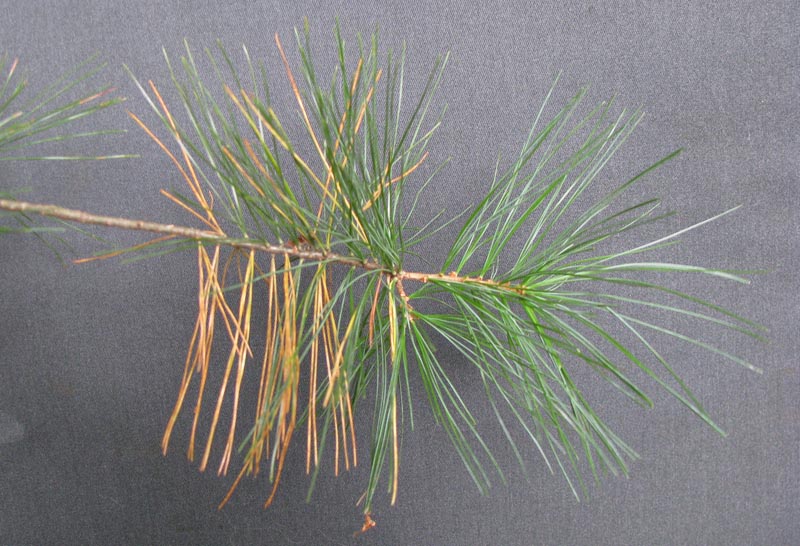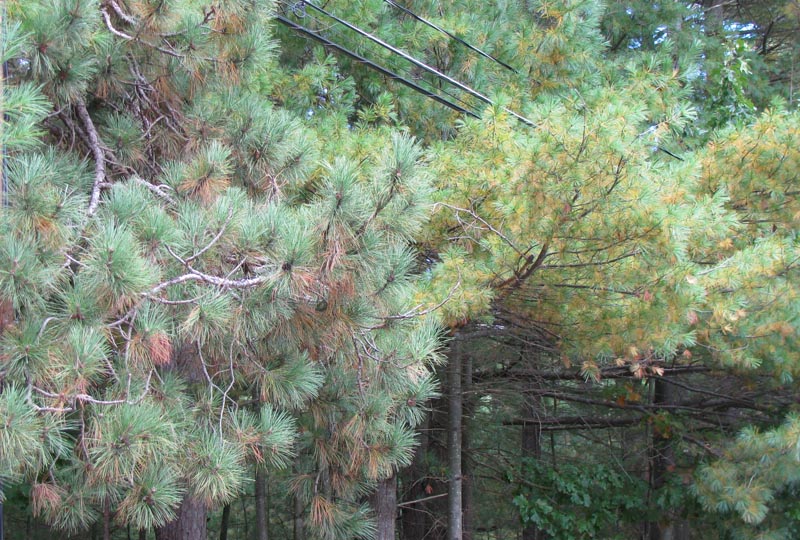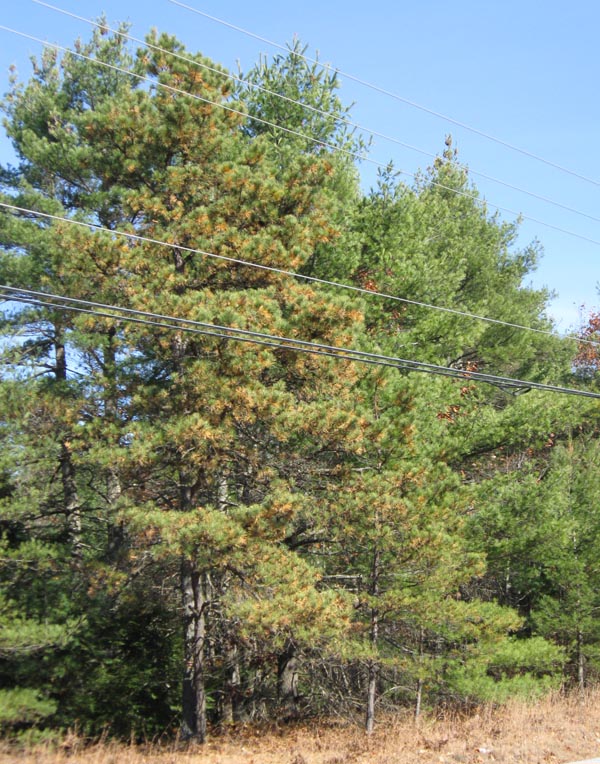In fall it is the bright red and yellow colors of the broadleaf trees that get all the attention from “leaf-peepers”. Much more subtle and largely unnoticed are the changing colors of the conifers. Even though pines and cypresses are evergreen, they still drop some of their leaves each fall.

This twig of Eastern White Pine shows the two most recent years’ growth still retaining green needles, while most of the older needles (grown three springs ago) are turning pale yellow-brown and falling. Many conifers retain green needles longer than this, for 3 or more years, but at some point the old needles turn brown and fall, and this seems to happen at a consistent and fairly well-defined time in each species.

While the dead needles persist on the tree they create a fairly obvious suffusion of yellowish or brownish color, partly obscured behind the tufts of living green needles at each twig tip. Subtle differences in color may help identify species, as the Eastern White Pine usually has a paler and more yellowish color, while Red Pine has more reddish color.
Differences in timing may also help to identify species. Among the three common northeastern pines, two species – Eastern White and Red pines – lose needles mainly in October, while Pitch Pine seems to lose its needles several weeks later on average.

This photo shows a Pitch Pine in Maine in early November. The Eastern White Pines around it have already finished losing their old needles and present a clean greenish overall color. The Pitch Pine is in the midst of needle loss, with the yellow-brown suffusion that Red and Eastern White pines showed a few weeks ago.
I did notice some Pitch Pines in Massachusetts losing needles in mid-October along with the Red and Eastern White pines, so maybe Pitch Pine just takes longer, or maybe there is a lot of variation in timing as there is in broadleaf trees. Either way it’s an interesting and potentially helpful thing to study.

